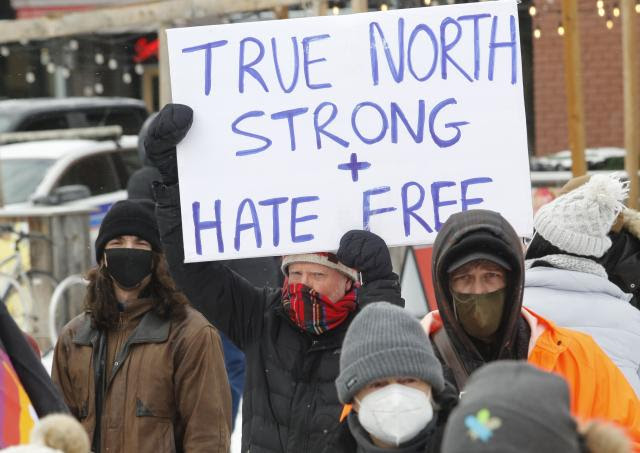Justice and Reconciliation Outdoors and Online Justice and Reconciliation Fund applicants have been challenged by ongoing pandemic restrictions in carrying out project over the past two years. Fortunately, some outdoor activities were able to proceed and others took place online.
The Justice and Reconciliation Fund contributed to development of the Gitche Namewikwedong Reconciliation Garden at Kelso Beach Park in Owen Sound. The garden includes a circular limestone terrace and seat wall, a sacred fire pit, a drystone stream bed, and a bridge spanning the stream. Trees and shrubs of cultural significance to the Anishinaabe will be planted throughout the site. In October 2021, a special focal point for the garden was installed: a large metal sturgeon “swimming” in the dry stream bed. Known as Nookomis Gitche Name’ Kwe (Grandmother Sturgeon), its “sacred and iconic presence at the garden will serve as the physical, spiritual, and cultural link to the traditional lands, and waters of the Anishinaabeg.” It was designed by Anishinaabe-kwe artist Kathryn Corbiere, a metal sculptor from M’Chigeeng First Nation on Manitoulin Island.
 Nookomis Gitche Name’ Kwe (Grandmother Sturgeon) [Photo credit: Kathryn Corbiere] The We Are All Treaty people (WAATP) event took place last September as a hybrid, with an in-person experience at the Kapapbamayak Achaak Healing Forest in St. John’s Park in Winnipeg, and a webinar later that afternoon. As 2021 marked the 150 th anniversary of the signing of Treaty 1 and Treaty 2, the planning committee felt it critical to have a component on the land. The Elders’ Council of the Treaty Relations Commission of Manitoba agreed to plan a Welcoming Ceremony at the healing forest. Fifty people attended this invitation-only event. Diane Dwarka, co-chair of the Prairie to Pine Regional Council represented The United Church of Canada. Each participant received a clay smudge bowl thrown by Quaker potter Keith Barber. Settler participants were asked to undertake 150 actions towards being good treaty partners within the following year. Upon completion of these actions, they will receive a companion mug to their smudge bowl. The afternoon webinar broadened engagement in the celebration and a YouTube video was made to provide a lasting educational tool. If you are inspired to take on a Justice and Reconciliation project, the next deadline for applications to the Justice and Reconciliation Fund is March 15, 2022. For more information, contact Lori Ransom. | 



No comments:
Post a Comment